Interview with Marc Johnson of Executioner
MM-Hello, what are you currently up to?
MJ-Currently, I teach high school English in Revere, a city just north of Boston. Dan is a conductor for CSX Railroad, and our last bass player, Tommy Flynn, has his own plumbing business.
MM-Executioner formed in 1984 (I believe). How did the band form?
MJ-Executioner formed in 1984, when Ari Vainio and I found Dan Scannell through a musician referral service. The band was originally called Last Generation, but when we quickly changed musical direction, Dan offered the name Executioner and we decided to go with that.
MM-Who were your musical influences?
MJ-Our musical influences varied. Originally we were influenced largely by classic metal, Iron Maiden, Priest, Ozzy; but as metal evolved, we became more influenced by newer bands like Metallica, Slayer, Anthrax and Manowar.
MM-What was the Boston club scene like around 84-87? What bands did you open for?
MJ-The club scene was changing from '84 to '87. Punk and metal were crossing over, so we played with a variety of bands including Megadeth, Manowar, Kreator and Voi Vod, but also D.R.I., GangGreen and the F.U.'s/Straw Dogs.
MM-Did you guys go through the whole sending out demo tapes and handing out fliers type of promotion?
MJ-We sent demos to the bigger indie labels at that time: Megaforce, Metal Blade, Combat and eventually New Renaissance. We also handed out TONS of flyers for our local shows. Flyers were a huge form of promotion back then.
MM-You had “Victim of evil” on New Renaissance’s Speed Metal Hell compilation in 1985. How did that come about?
MJ-New Renaissance selected "Victims of Evil" from our first demo tape for their first Speed Metal Hell compilation.
MM-How did you get signed by New Renaissance? Were there any other labels interested in you as well? If so then what labels?
MJ-"Victims of Evil" was well received on Speed Metal Hell, and as a result, NR offered us a two album contract, which we took. We did not have offers, or serious interest, from any other labels.
MM-What was the band’s relationship with New Renaissance like?
MJ-We had a fairly good relationship with NR. I think we saw it for what it was. We never expected to sell millions of records on New Ren, but it seemed like a good place to start, and at least get our music out. New Ren was very do-it-yourself, which made for minimal financial support, but part of me still kind of liked as it made for minimal creative interference. We worked back in Boston to get our self-financed recordings done, and then booked two nationwide tours--the first we booked ourselves, and the second was booked by a real cool punk booking agent, Johnny Stiff, out of New York. We paid for all our own recordings, but New Ren did give us a little bit of support on our second tour. I think we had a realistic expectation of what could come from the label, and because of that, our relationship was pretty good.
MM-One of my friends bought this video that you used to sell and it had several shows on it. There was one show where you threw a vinyl copy of “In the name of metal” out to the crowd and it broke. Did you often throw albums out to the crowd? I would imagine that a lot of them got broken with everyone trying to grab them, was that true?
MJ-Funny, I only threw that one record out into the crowd, and I never knew it broke (if, in fact, it did). I just did it to draw attention to the release of our first album. It's ironic that it was all captured on video, as it was a one-time thing.
MM-I have read some reviews of "In the name of metal" by people who loved it and then some magazines absolutely hated it. It seemed like there wasn't any middle ground in response to that album. Do you think that's true if so then why?
MJ-In The Name Of Metal is an odd record. Much of the production is very poor. We had almost no studio experience, and were often misled production-wise, especially when recording speed metal tracks. However, some of the slower and mid-paced songs seem to hold up ok. Overall, it is an odd mix of influences. Ari and I co-wrote a lot of that material, which made for some, at least fairly, original material. Ari's influences were far more diverse than my own. He liked everything from the Ramones to The Clash to Venom. In truth, he was a much more original composer. I was more a copycat--the majority of the songs I wrote were directly inspired by who I was listening to that day, lol. "In The Name Of Metal" itself was written during my Manowar month! Overall though, to try to answer your question, the album is diverse, and I think that while some people really appreciated the scope of having punkier tracks like "Stand Up And Fight" fused with thrashier ones like "Victims Of Evil", other people bought it expecting pure thrash and just didn't know what to make of it. They then ended up dismissing the whole disc.
MM-What are some of your favorite songs on that album and why?
NJ-My favorite tracks are "Stand Up And Fight", and "Hell And Back" (both of which were mainly written by Ari). I like both of these songs for their originality. I think they represent the most inspired songwriting on the album. As a result, I feel they hold up over time (the ultimate test in my mind) the best. Interestingly, I have often thought lately that the closing lyrics to Stand Up And Fight are eerily relevant to our current war in Iraq.
MM-Was original bass player Ari Vianio really kicked out of the band because he got his hair cut?
MJ-Ari was kicked out because he could not handle the pressures of the first tour. This resulted in his punching our van in Texas so hard that he broke his hand; and thus, in our being forced to cancel the rest of the tour.
MM-Your second release “Break the silence” has re-recordings of a few tracks that were on the debut. Why do you re-record those songs?
MJ-We re-recorded those tracks because we were very unhappy with their production on ITNOM. Ann Bolyn cautioned us against doing this, and she was right. It was a mistake, as it made people less likely to buy an album with songs they'd already heard (and in some cases, owned).
MJ-Unlike the debut, all the new material on Break The Silence was written by me. Therefore, the new material moved in a much more of-the-moment speed metal sound. This basically made for solid, albeit less original, songs. We also pared down the production to a more bare-bones sound, which worked well, I thought. In many cased, ITNOM was simply over-produced, where as the production on "Break The Silence" better captured the essence of the band's sound. Lastly, Break The Silence did produce what I would say is the band's best cut. The last gasp of Ari's influence can be heard on Terminally Ill, and to this day, I feel it is our strongest track.
MM- What was Seth Putnam like to work with? Where did you find him at?
MJ-Seth had been friends with Dan and myself for some time up until 1986. He was even a roadie on the tour when Ari broke his hand. Therefore, he was a natural fit as a new bass player. Initially, Seth was great to work with, but as Executioner began to wane a little and Seth became more involved in his own projects, our relationship deteriorated.
MM-Then you recorded a third album that I believe it was originally going to be called “In cold blood”. When was that recorded and did you get any label interest?
MJ-In Cold Blood was recorded in 1988. I would say it is by far our best production, although as for the songwriting, I'd say we were really just beginning to sound derivative of my influences. I do feel that on those tracks, we finally got the production quality to where we wanted it. Unfortunately, it did not attract major label attention, which is what we were seeking. We then considered releasing it on our own, but that idea faded, as the challenge seemed too daunting.
MM-When and why did the band break up? Did you play in any other bands after that?
MJ-The band broke up in 1989, and neither Dan, nor Tommy, nor I played in any other bands. Executioner ended because we were limited by my songwriting ability and we were never going to be a great band, or even a great enough band to make a living playing music. More and more over time, I see now that ultimate success hinges on songwriting/creativity, and as I mentioned, my songwriting tended to chase the latest trend; whereas the truly great bands who have endured (Metallica, Slayer, Megadeth--not to mention auteurs like Nirvana) were all genuinely original, and ahead of the curve. Also, I had begun to develop other interests at that time, and we were each at an age where we needed to focus on some kind of financially viable career.
MM-“The Storm after the calm” came out earlier this decade. Is that the same material that was going to be “In cold blood” (minus the fake live tracks)? I think I bought my copy on eBay from drummer Dan Scannell. Was it just Dan who put “The Storm after the calm” together or did you have input into it well?
MJ-Dan and I worked together to put out "The Storm After The Calm" (although the title was suggested by a student of mine at that time, Roman Temin). It is, as you say, "In Cold Blood", less the live-in-the-studio tracks (with fake audience--inspired by Slayer's "Live Undead" EP).
MM-Have you had any talks with New Renaissance about releasing “In the name of metal” and “Break the silence” on CD?
MJ-New Renaissance mentioned perhaps wanting to release ITNOM and "Break The Silence" on CD, but we never had any serious discussions.
MM-Do you have any regrets in your music career?
MJ-Happily, I cannot say that I have any real regrets regarding my music career. It was an amazing adventure that I wouldn't trade for anything. I got to play music, meet lots of cool people and see the country. I guess, if anything at all, I might wish that Ari had remained in the band, as I think his original songwriting might have lifted the ceiling on what we could have accomplished. Overall though, the '80's were a great time to being playing metal music, and I just feel really lucky to have played a little part in all of it.
MM-Is there anything else that you would to say about your band, your music or anything else?
MJ-So, thanks for the interview! Thanks to those who read it; and if anyone out there has some time, throw on an old Executioner song. If it takes you back to a fond memory, I couldn't ask for more.
Dan Scannell and Marc Johnson on Christmas Eve 2008.
Labels: Executioner, interview
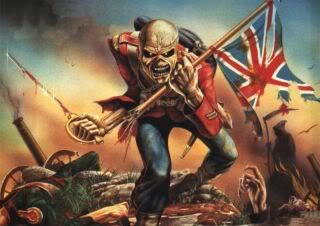
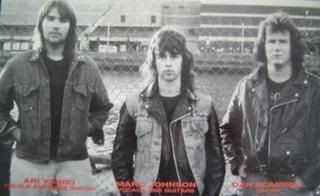
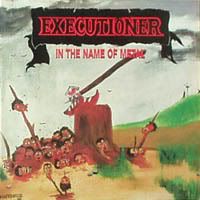
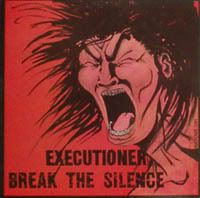
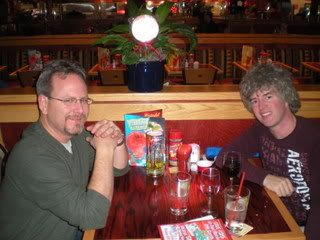

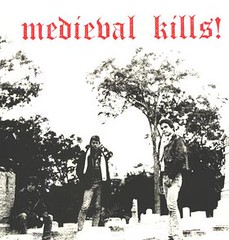
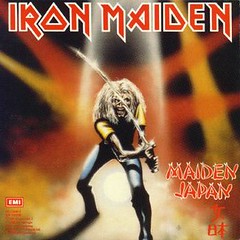
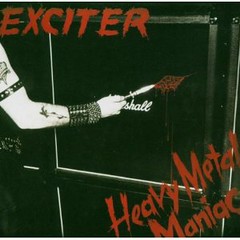
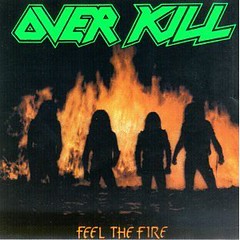
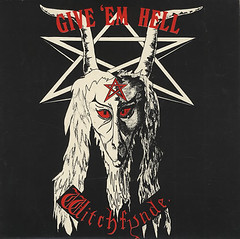
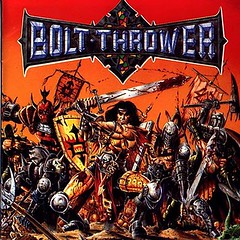
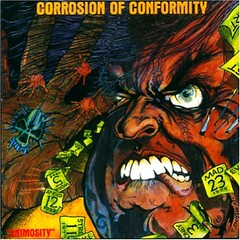
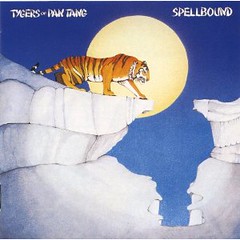
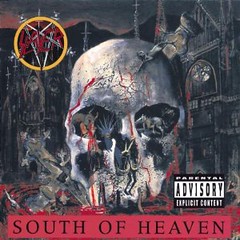

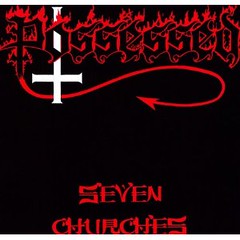
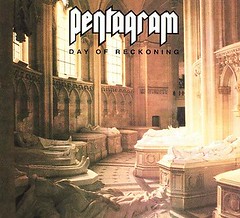
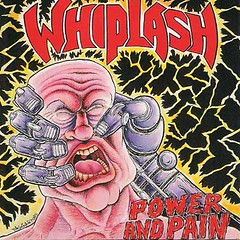
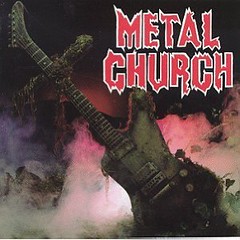
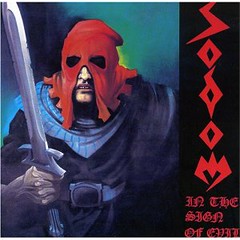
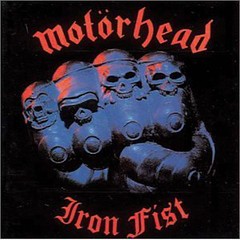

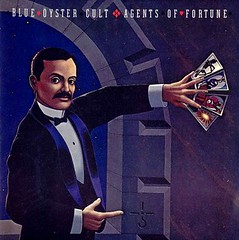
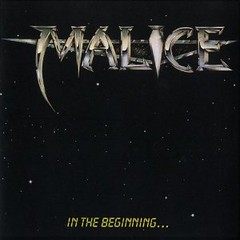
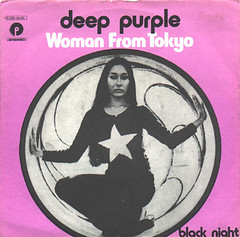
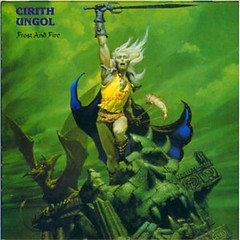
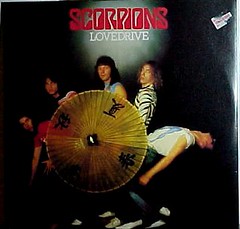
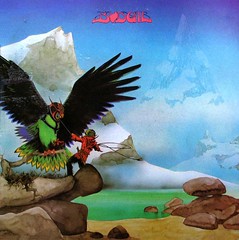
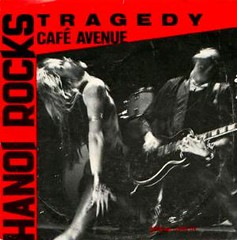
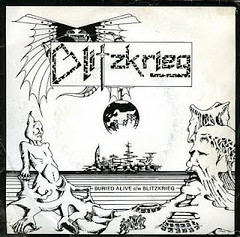
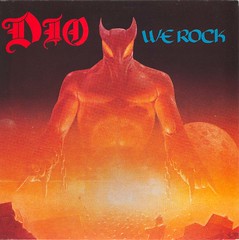

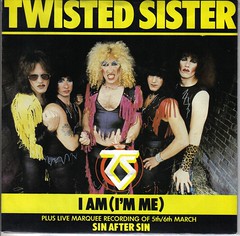
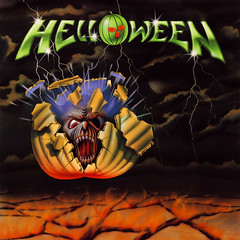
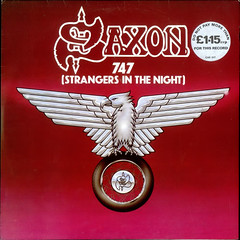
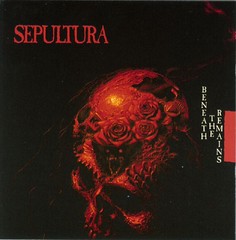
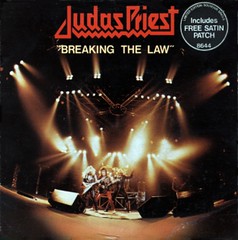
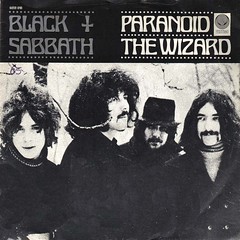
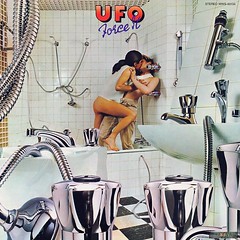
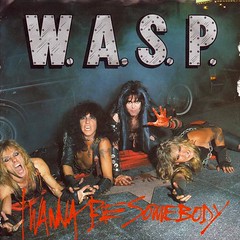
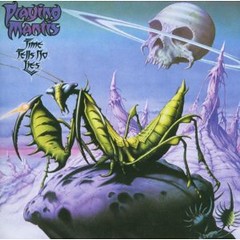

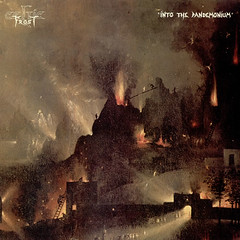
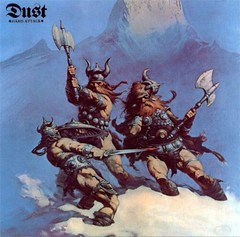

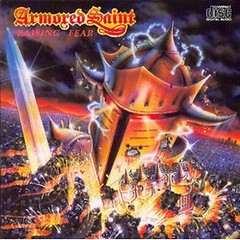
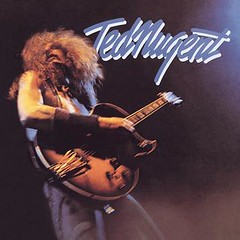
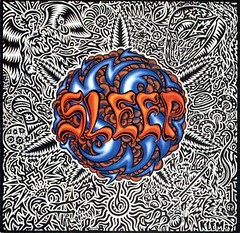
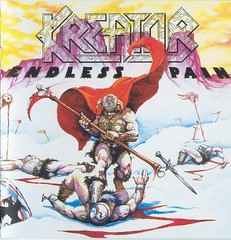
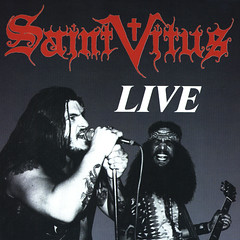
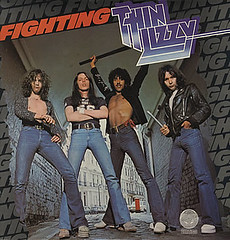

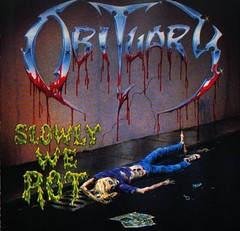
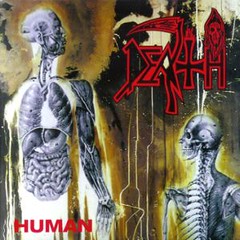



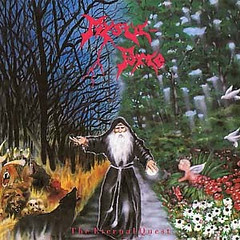








7 Comments:
Sweet! Hi, Marc, glad to see you about. I ordered the bootleg VHS tape of the Executioner shows and got two more shows than I expected to get. Good man!
To this day, In the Name of Metal is one of my favorite thrash albums. A lot of the stuff I thought was great at that time hasn't held up that well, but that album really has everything that was great about the genre. True, it didn't transcend thrash like some of the bigger bands had, but it captures the essence of what was going on at the time in a way that I can enjoy today in a way that is much more significant than simple nostalgia.
thank you bob.well said.
Just found this - very cool!!
I had a fanzine back in the '80's and received quite a few records from New Renaissance. I still have "Break the Silence" on vinyl but I cannot seem to get my hands on "In The Name of Metal".
Is there any way to get the songs from this record as mp3's?
Not wanting to pirate the tracks, I know that New Renaissance has been trying to find Marc to re-release the record. If so then i'll buy the tracks, but if not...somebody hit me up!!!
I just heard In The Name of Metal for the first time a couple of days ago and its great. It has been next to impossible to find even mp3s of this band and this interview is the only info on Executioner that pops up on search engines. Good to know what they were about, surely some label will re-release their albums on CD.
could we see the original lineup reform and the possibility of a new CD coming out? Dan and Marc do you still speak with your ex mates Seth and Ari?
we speak with ari and seth but ari is in finland and seth is doing his thing with A.C.
Post a Comment
Subscribe to Post Comments [Atom]
<< Home